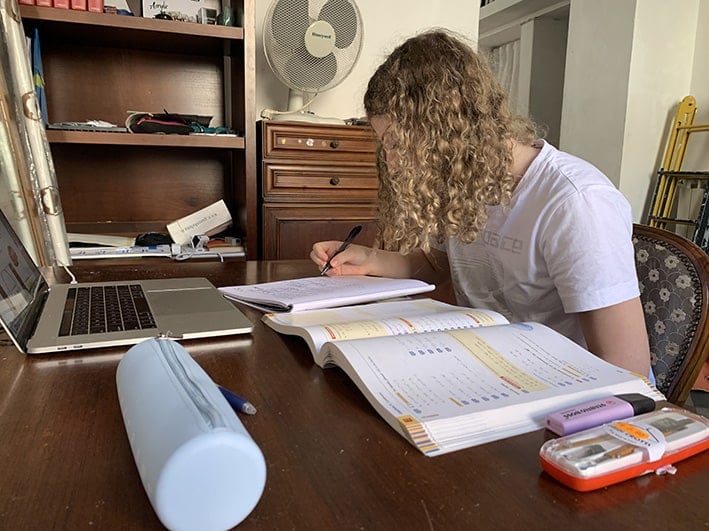Given the consensus that the worst of the Covid-19 pandemic is over and Catholic, Independent and government schools around Australia are gradually reopening, it’s timely to consider the lessons of the last couple of months.
As a result of schools being closed except for students under exceptional circumstances the overwhelming majority of students have been forced to learn from home with parents taking responsibility.
The first lesson is notwithstanding the benefits of digital technology, computers and the internet students learning at home via virtual classrooms will never replace being physically at school learning and interacting face-to-face and being taught by committed and knowledgeable teachers.
Education is an intensely human activity where teachers need to engage and motivate their students and this kind of interaction cannot be found in a virtual classroom. Once the novelty and excitement wear off it’s only natural that students want human contact.
“Education is an intensely human activity where teachers need to engage and motivate their students and this kind of interaction cannot be found in a virtual classroom.”
In addition to their formal education students from prep to year 12 also learn a good deal by interacting with their peers and being involved in extra-curricular activities whether sport, music, debating or drama. Activities difficult, if not impossible, for most parents to organise at home.
There is also the concern, as research demonstrates, that too much screen time is counterproductive as it adversely affects a student’s ability to complete more complex, difficult learning tasks that require concentration and patience.
Secondly, it’s obvious that learning from home is not a level playing field as not all students have the advantage of high speed internet, the most recent digital technology and a space where they can work uninterrupted and without being distracted.

It’s equally true that not all schools and all teachers have the expertise and resources to set up and manage virtual classrooms.
A third lesson, as a result of families being made to isolate and children not being at school, is that parents have been reminded how difficult and challenging it can be to manage and supervise children and adolescents.
While teachers have always been held in high regard by their students’ parents the anecdotal evidence is that parents having to take responsibility and ensure their children are not distracted and waste time has reaffirmed their belief that teachers should be admired and respected for the work they do.
“Teachers should be admired and respected for the work they do”
Fourthly, closing schools and learning from home has also raised concerns about whether students’ academic ability has been adversely affected. In some states students have missed nearly 2 months of formal, structured classroom teaching and learning and the challenge now is how best to make up for lost time.
Especially concerning is the plight of Year 12 students across Australia as the final year of schooling culminates with each student receiving an Australian Tertiary Admissions Rank (ATAR) that is used for tertiary entry.
It’s important that schools provide extra resources and teaching time for senior school students in particular to ensure they are not disadvantaged and that they have the required level of subject knowledge, understanding and skills to ensure success in their  end-of-year examinations and after they leave school.
end-of-year examinations and after they leave school.
Dr Kevin Donnelly is a Senior Research Fellow at the Australian Catholic University and author of ‘A Politically Correct Dictionary and Guide (available at kevindonnelly.com.au)
